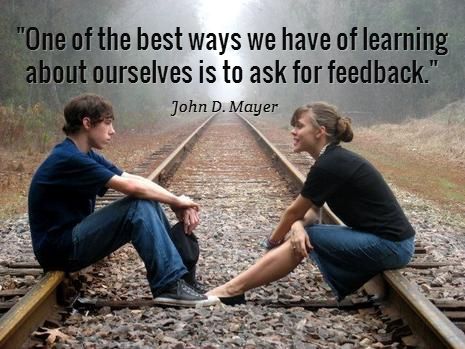Intelligence
Unlocking the Keys to Personality
Five ways to foster personal intelligence in teens
Posted March 12, 2014

How do teenagers respond when a situation doesn’t feel right? How do they use feedback as they struggle to discover their inner selves? IQ tests can give kids feedback on their intellectual abilities but more and more research shows that a combination of intelligence and personality matters to life success. It is a teenager’s personality that rubs against or engages others when faced with challenging situations.
“Adolescents vary dramatically in their ability to reason about their own and other’s personalities,” says John D. Mayer, renowned psychologist who helped develop the theory of emotional intelligence.
In his recent book, Personal Intelligence: The Power of Personality and How It Shapes our Lives, Mayer uses a great example to show what these differences might look like in the lives of teenagers.
In one research study, teens were asked to write about a time when peers had pressured them to act in ways that felt uncomfortable. A young man and young woman shared very different stories.
The young man told about a time his friends commanded him to beat up another student. He was not a violent person and tried to resist their demands. But he gave in, attempting to fight in a way so as not to harm the other boy. In his written account of the incident, he never thought to explain the intricacies of what the fight was about or why he eventually felt compelled to fight.
By contrast, the young woman’s written experience was full of rich details about relationships, motives, and personalities. She told of a time she was urged by friends to sneak into someone’s room and paint her while asleep. Her friends thought it would be a funny, practical joke.
Like the young man’s story, her friends presented a dare that didn’t feel right. But instead of giving in, the young woman told her friends what she thought, that it would be a degrading thing to do and would not be funny to the unsuspecting girl.
Both of these teens scored high in traditional IQ scores, yet their abilities to understand and make judgments about their own personalities and the personalities of their peers were very different.
In his book, Mayer introduces a ground-breaking idea. The most high-functioning people, he says, are those who have personal intelligence, a kind of reasoning that helps them understand the power of personality and how it shapes their lives. “Personal intelligence,” he says, “helps us know when to change course, and when to exhibit grit and perseverance.” Knowing our feelings and getting feedback from others are keys to developing this kind of intelligence.
Psychologists used to believe personality evolved from our DNA and that personality traits could not be changed. But research in neuroscience continues to show, while we are born with certain traits, our personalities continue to be shaped by relationships and experiences throughout our lives.
Mayer’s book is a deep and intriguing read into how our personalities evolve from infancy to adulthood. He defines personal intelligence as a combination of related skills, including how we demonstrate self-awareness, navigate the situations and people we encounter in the world, and achieve our goals.
These sets of skills are extremely important, especially as teens form their own identities and sense of self. How teens reason and respond in various situations, according to Mayer, depends on their personalities—their personal intelligence.
How can Mayer’s theory be put into practice for parents, teachers, and others who work with young people? Gleaned from the abundance of research in Mayer’s book, here are five ways to foster personal intelligence during the teen years.
Personal Intelligence: 5 Ways to Help Teens Know Themselves
- Engage teens in conversations about their personal desires, feelings, and thoughts. When teens begin to recognize and weave together different aspects of themselves, they also learn to detect clues about others.
- Teach young people the value of feedback and how to ask for it from people they respect. Mayer emphasizes, “One of the best ways we have of learning about ourselves is to ask for feedback.” Today’s students get way too much feedback on how they perform on the outside and way too little on how others perceive their internal abilities. It is this kind of feedback that helps develop personal intelligence!
- Help teens discover their personalities by directing their attention to inner experiences. For example, instead of drawing attention to something successful they just accomplished, make a comment that takes them inward, like, “It looked like you were having a great time.”
- Have conversations that help teens dissect their emotions, encouraging them to reason about situations based on their own internal understanding. Teens who better understand themselves on the inside have an advantage in understanding their personalities.
- Inquire frequently about what teens care about and value. Life requires compromises and trade-offs. When young people get clarity about their own values, it improves their personal intelligence; they are able to recognize and understand when compromise is required or when they must stand strong on personal principles.
Mayer’s insights challenge us to broaden our understanding of what it means to be successful in our society. They underscore the importance of personality—how we learn to know ourselves and how we act on that understanding. These are essential insights for everyone, but are particularly important as teens form identities as young adults, separate from their parents. All of us play a part in helping shape personal intelligence in young people!
Author
Marilyn Price-Mitchell, PhD, is a developmental psychologist working at the intersection of youth development,leadership, education, and civic engagement. Subscribe to Updates at Roots of Action to receive email notices of Marilyn’s articles.
Follow Marilyn at Roots of Action, Twitter, or Facebook.
©2014 Marilyn Price-Mitchell. All rights reserved. Please contact for permission to reprint.




